Artemis 1 passes flight readiness review
Tuesday, 23 August 2022 09:53
An uncrewed test of NASA’s Space Launch System and Orion spacecraft moved a step closer to launch with the completion of a flight readiness review Aug. 22.
The post Artemis 1 passes flight readiness review appeared first on SpaceNews.
Media briefing: Artemis I getting ready for launch
Tuesday, 23 August 2022 09:00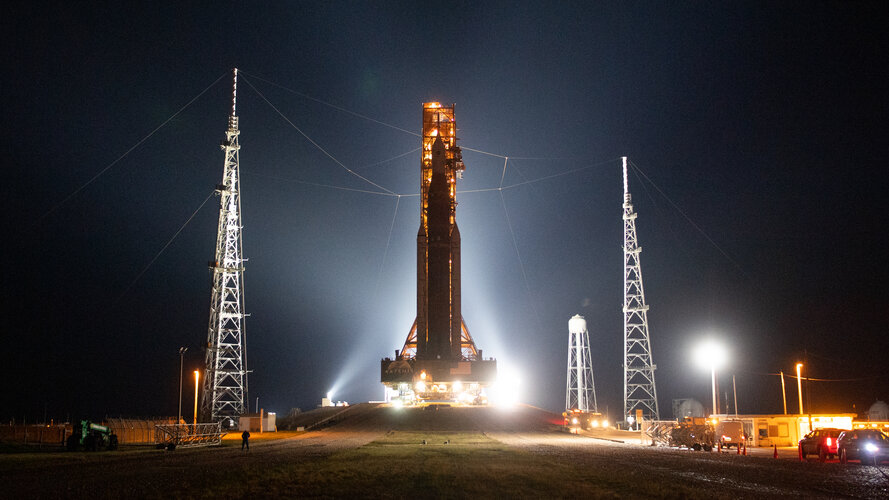 Video:
00:57:00
Video:
00:57:00
The Artemis I mission is almost ready for launch: it will send an uncrewed spacecraft beyond the Moon and back.
Watch the replay of this virtual Q&A to learn more about Europe's contribution to the mission: ESA is overseeing the development of the European Service Module, that provides air, electricity and propulsion to the spacecraft. Participants to this media briefing include Josef Aschbacher, ESA Director General ; David Parker, ESA Director for Human and Robotic Exploration ; Jean-Marc Nasr, Airbus EVP Space Systems and Marc Steckling, Airbus Head of Space Exploration
NASA rocket launch will test science package for future missions
Monday, 22 August 2022 20:04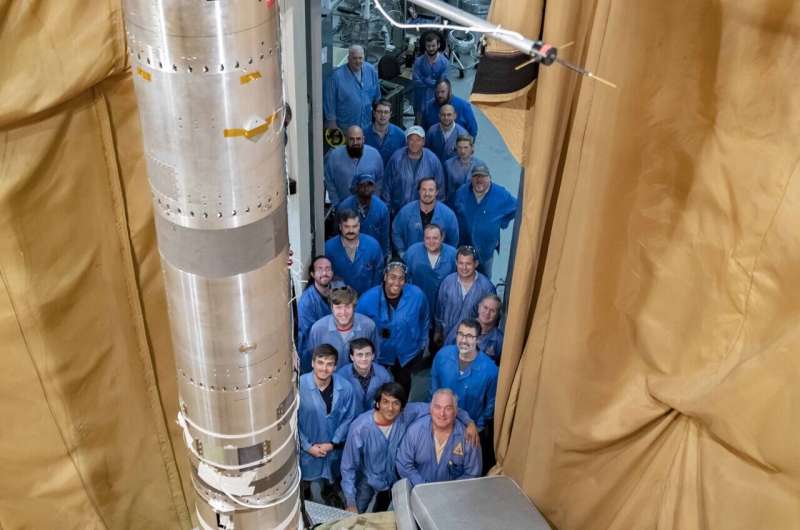
NASA will test new science equipment for future missions with a sounding rocket launch August 22 from its Wallops Flight Facility in Virginia.
The Sporadic-E ElectroDynamics Demonstration mission, or SpEED Demon, will fly new instrumentation along with heritage instruments that have flown on other sounding rocket missions, but not together. The SpEED Demon instruments will be further improved based on results from this launch and will subsequently fly on a science mission targeted for summer 2024 from the Kwajalein Atoll in the Marshall Islands and possibly many other sounding rocket opportunities.
SpEED Demon will launch on a 40-foot tall Terrier-Improved Malemute sounding rocket between 9 p.m. EDT Aug. 22 and 1 a.m. Aug. 23. The backup launch dates are Aug. 23 through Aug. 27.
The NASA Wallops Visitor Center will open to the public at 8 p.m.
Schiess takes over U.S. Space Command’s coalition forces component
Monday, 22 August 2022 17:33
Space Force Maj. Gen. Douglas Schiess on Aug. 22 assumed command of U.S. Space Command’s Combined Force Space Component Command at Vandenberg Space Force Base, California.
The post Schiess takes over U.S.
SpaceX adds Falcon 9 back to second-gen Starlink launch plan
Monday, 22 August 2022 17:15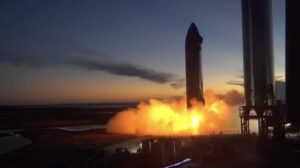
SpaceX has decided to use a mix of Falcon 9 and Starship rockets to launch the 30,000 satellites in its proposed second-generation Starlink broadband constellation.
The post SpaceX adds Falcon 9 back to second-gen Starlink launch plan appeared first on SpaceNews.
NASA targets 13 landing sites on moon's south pole for human landing
Monday, 22 August 2022 17:01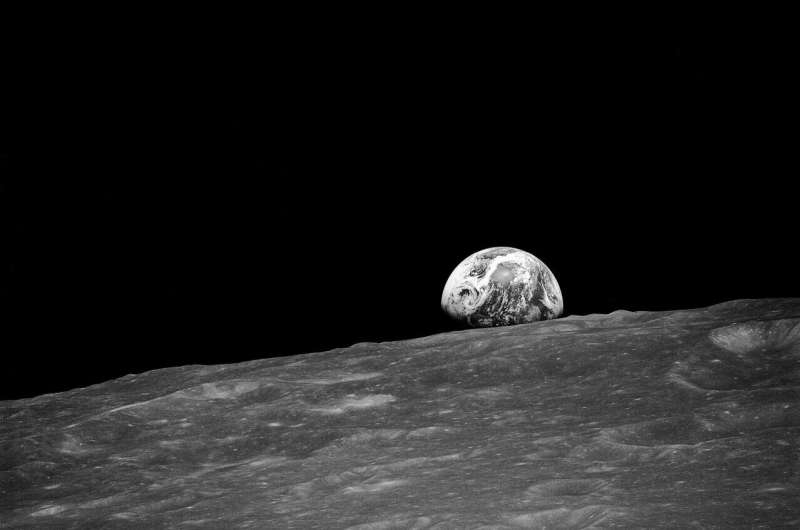
NASA juggled light and dark to come up with 13 potential landing sites for the future Artemis III mission that will return humans to the lunar surface for the first time since 1972.
Key to the choices was being able to find locations that could support the duo of astronauts for 6 1/2 days on the surface with enough sunlight to provide power and thermal protection, but also give access to the dark regions of craters and mountainous terrain near the moon's south pole that could potentially hold water ice.
Finding water ice, which could be broken down into its component oxygen and hydrogen compounds to provide life-sustaining air and potential fuel, has been the driving force behind the initial Artemis missions.
The uncrewed Artemis I rocket is at the launch pad at Kennedy Space Center awaiting a potential launch as soon as Aug. 29. Artemis II is slated to fly with astronauts in 2024, but only orbit the moon. The Artemis III flight is slated for 2025, and two of its four astronauts, including the first woman, will take a version of SpaceX's Starship to the lunar surface.
APL’s Future Vision: Q&A with Robert Braun
Monday, 22 August 2022 14:47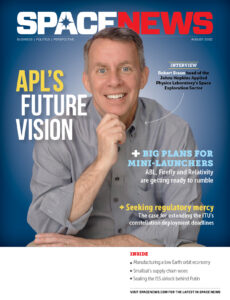
The Applied Physics Laboratory's new space sector director spoke with SpaceNews about his vision for APL's portfolio of civil and national security space projects.
The post APL’s Future Vision: Q&A with Robert Braun appeared first on SpaceNews.
Growing alfalfa in Martian-like soil and filtering water using bacteria and Martian basalt
Monday, 22 August 2022 13:50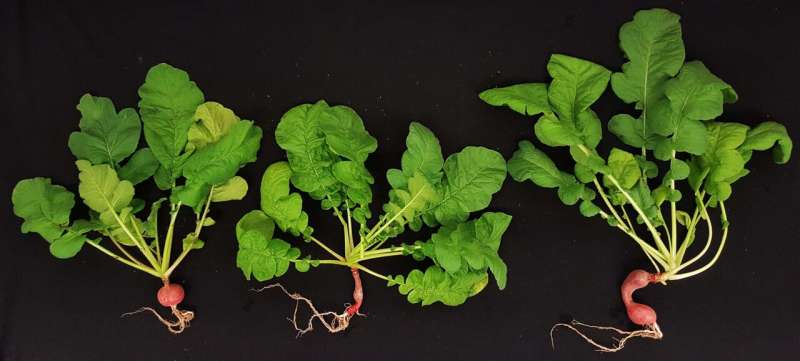
A team of researchers at Iowa State University has found that it may be possible to grow alfalfa successfully on Mars. The group has written a paper describing their work and have published it on the open-access site PLOS ONE.
As various groups around the world ponder the possibility of not only sending humans to Mars but of building shelters on the Red Planet that could sustain them—possibly indefinitely—work continues on ways to make such projects possible. Such projects have many challenges to overcome before they can become reality, one of which is how to feed people living so far away.
Orbital Reef passes NASA review
Monday, 22 August 2022 13:00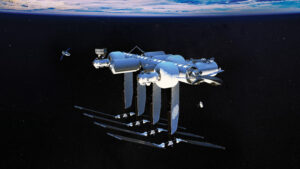
A proposed commercial space station has passed a key early NASA review, allowing it to move into the next phase of its design.
The post Orbital Reef passes NASA review appeared first on SpaceNews.
New pics of Phobos from China's Tianwen-1 orbiter
Monday, 22 August 2022 12:45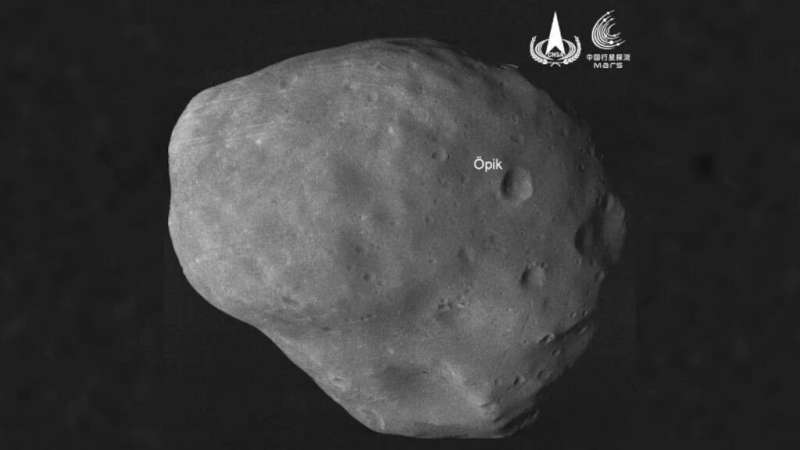
Two fundamental factors affect all astrophotography—timing and location. If a camera happens to be at the right place at the right time, it can capture images that have never been seen before. And with the proliferation of cameras throughout the solar system, more and more novel photos will be captured at an ever-increasing frequency. China's Tianwen-1 probe added to that novel collection to celebrate its second anniversary by taking a shot of Mars' moon Phobos.
The image itself is stunning, with clear definition of many features of the object, whose length isn't much more than that of Manhattan. Seen in full sunlight, or as we might call it on Earth, as a "full moon," there are some noticeable streaks in the upper left of the photo, which may indicate relatively recent impacts. In addition, a crater named Estonian astronomer Ernst Öpik is visible in the upper right of the image. Other features, named after other astronomers and characters from Gulliver's Travels, aren't as clear on the image, as the space around the Öpik crater is largely featureless.
SpaceLink partners with Parsons for DARPA’s inter-satellite communications project
Monday, 22 August 2022 12:00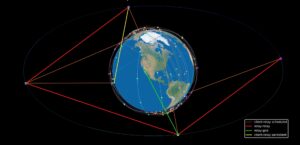
SpaceLink will work with the Defense Advanced Research Projects Agency to develop protocols for how commercial communications constellations will connect with defense and military systems.
The post SpaceLink partners with Parsons for DARPA’s inter-satellite communications project appeared first on SpaceNews.
Jupiter showcases aurorae, hazes (NIRCam widefield view)
Monday, 22 August 2022 11:57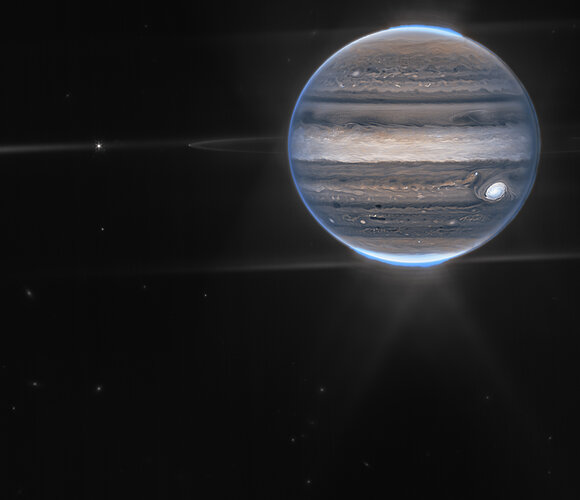 Image:
Jupiter showcases aurorae, hazes (NIRCam widefield view)
Image:
Jupiter showcases aurorae, hazes (NIRCam widefield view) China claims progress on rockets for crewed lunar landings and moon base
Monday, 22 August 2022 11:37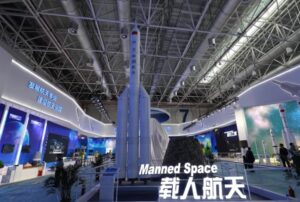
China is progressing with the development of two super heavy-lift rockets for crewed missions and infrastructure launches to the moon, according to officials.
The post China claims progress on rockets for crewed lunar landings and moon base appeared first on SpaceNews.
Surprising details leap out in sharp new James Webb Space Telescope images of Jupiter
Monday, 22 August 2022 11:22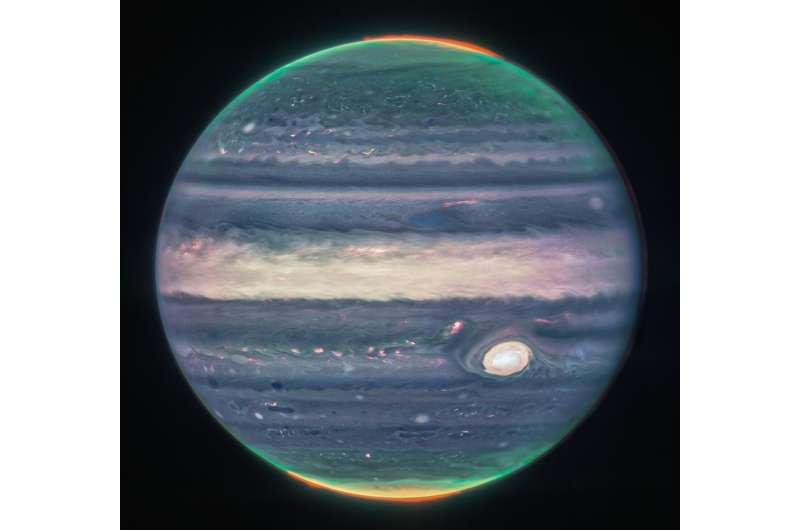
New water map of Mars will prove invaluable for future exploration
Monday, 22 August 2022 11:00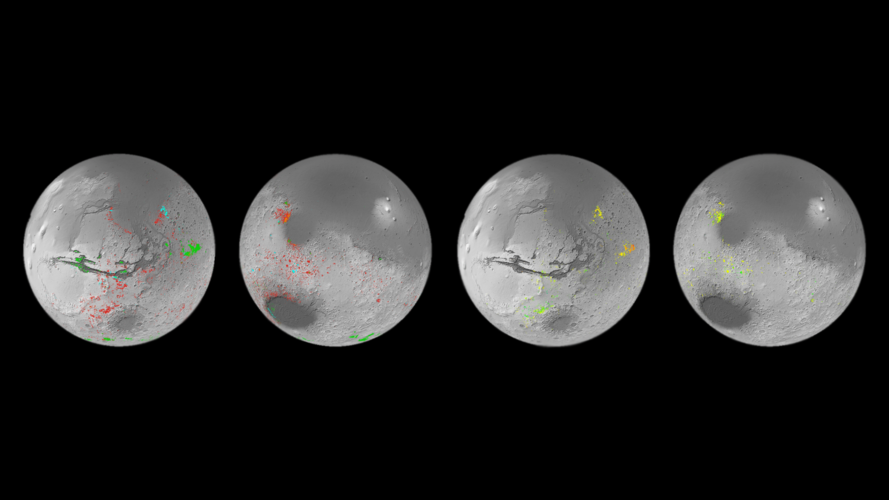
A new map of Mars is changing the way we think about the planet’s watery past, and showing where we should land in the future.

